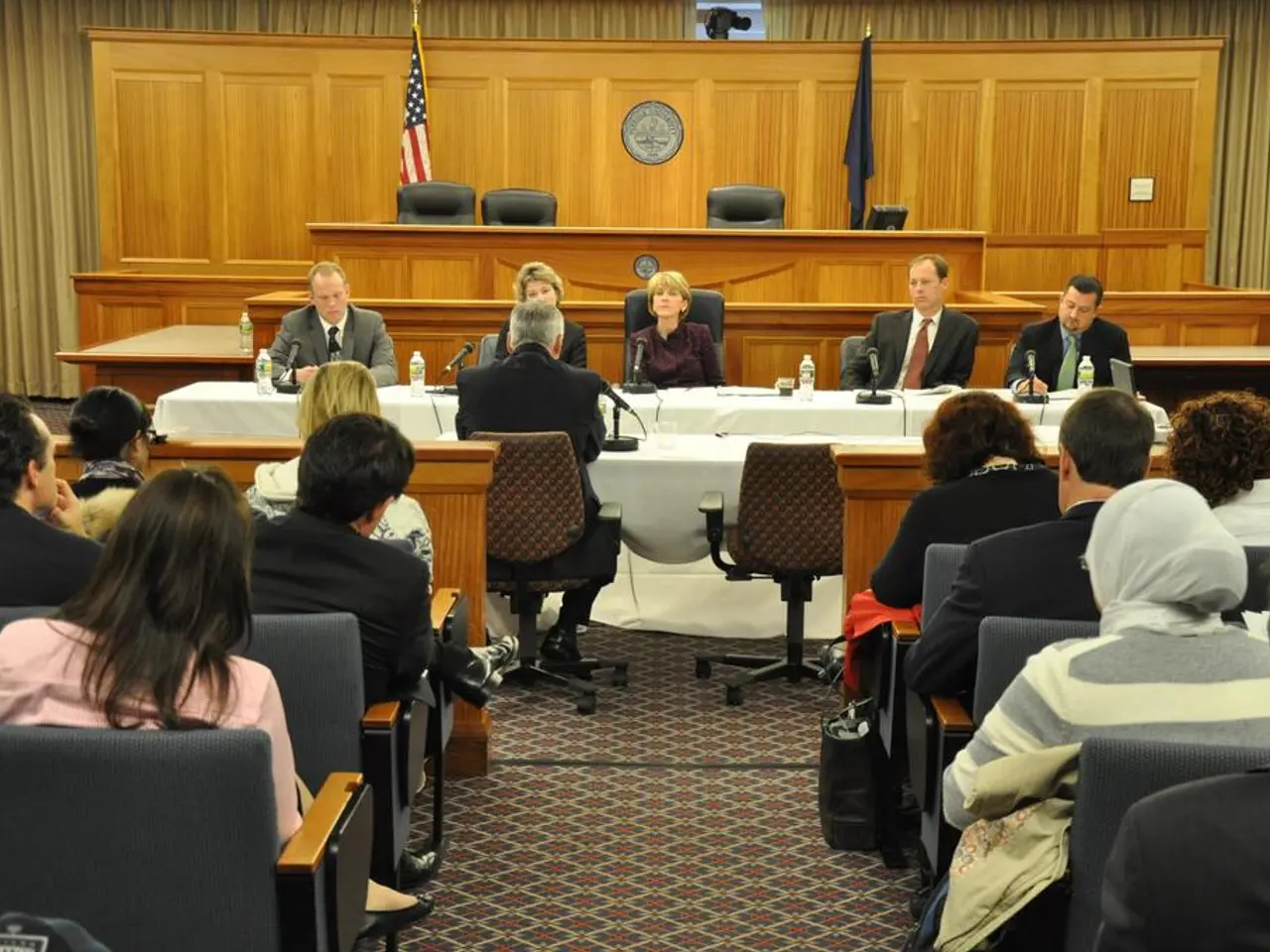12:56 Merz underscores importance of maintaining vigilance in security measures
Facebook || Twitter || Whatsapp || E-Mail || Print || Copy Link
Germany's Federal Chancellor Friedrich Merz issues a stern warning to the nation, urging caution in light of the ongoing Russian attack on Ukraine. "Don't take our security for granted," Merz says, stressing the need for more defense efforts to preserve freedom, peace, and security.
Meanwhile, the federal government expedites its weapons procurement by introducing legal simplifications. This includes loosening restrictions for startups and tech companies, enabling advance payments. Procurements deemed essential to Europe's military preparedness will be considered a vital national security interest, bypassing European procurement law.
Niko Karasek, a Russia expert, sees Putin's perceived willingness to negotiate as a naive tactic reminiscent of Cold War spying tactics. He reveals that Putin has been employing such tactics since the start of the conflict.
Olaf Scholz, former Federal Chancellor, warns about having unrealistic expectations of Putin's intentions. He emphasizes Putin's ambition to not only maintain but also expand his territorial gains in Ukraine, ending decades of understanding in post-war Europe. He calls for a stronger Bundeswehr and closer NATO cooperation.
Ukraine seeks to tap into frozen Russian funds to fund its defense and reconstruction. This financial aid would not only serve to purchase weapons but also to bolster its defense industry.
Amidst these geopolitical events, the human aspect is also in focus. Luiza Rozova, believed to be Putin's illegitimate daughter, quietly studies art in Paris while her father wages war. Insights from her acquaintances provide a glimpse into her life and feelings toward her powerful father.
In the midst of the night, Odessa comes under attack by Russian drones. Rescue teams manage to save several people from a burning building, while at least two people are reported dead and six injured, including two children.
As the war enters its fourth year, Estonia and Lithuania withdraw from the Ottawa Treaty due to increased security concerns resulting from Russian aggression against Ukraine.
In intelligence news, a man is arrested in Odessa for attempting to bribe an engineer for access to secret information about military jet technology.
Finally, an estimated 111,000 Russian soldiers have gathered at Pokrovsk, focusing Russian offensive efforts on the region for months. Around half of Americans support new sanctions against Russia.
In-depth Perspective
The German government has noted a significant change in approach to security and defense, stepping up military expenditure and increasing armaments procurement amidst the confrontation in Ukraine. The anticipated defense budget will almost triple by 2029, reaching €153 billion, while defense spending will account for nearly 27% of the federal budget. Germany is also working towards meeting the NATO goal of investing 5% of GDP in military and war-related costs by 2029, an accelerated timeline from the previous 2035 plan. The Ukrainian conflict has spurred this new wave of military support, with approximately €8.3 billion set aside this year for military aid to Ukraine, with projected additional funding of around €9 billion for 2025. The surge in military spending is primarily funded through new borrowing, with €143.1 billion in loans planned for this year alone.
Germany has also approved a constitutional amendment to facilitate increased defense, infrastructure, and foreign aid spending, bypassing former debt limits. Military and foreign aid expenditures—especially for countries attacked in violation of international law—are exempt from the "debt brake," creating a more flexible approach to financing defense needs. The amendment garnered widespread political support and paves the way for the creation of a "new European defense community."
In addition to military aid, Germany is partnering with Ukraine to develop defense production capabilities, allocating €1.9 billion in the upcoming year for co-production of advanced warfare systems in Ukraine. Technological cooperation is focusing on areas like electromagnetic warfare and drone combat, indicative of a shift away from traditional armaments to contemporary technologies.
This comprehensive approach represents a turning point in Germany’s defense policy, marking a move toward a more assertive and financially supported military posture within the broader European security context. The developments unfolding in Ukraine are driving Germany to rethink its defense strategy and its role in Europe's collective security.
- As Germany strengthens its defense and foreign aid spending with the aim to meet NATO's war-related costs goal by 2029, a constitutional amendment has been approved to facilitate this expansion, bypassing former debt limits and setting the stage for the creation of a new European defense community with emphasis on technology cooperation in areas like electromagnetic warfare and drone combat.
- Among the human implications of the war in Ukraine, Luiza Rozova, who is believed to be Putin's illegitimate daughter, has been studying art in Paris while her father wages war, providing a rare insight into personal feelings and experiences of people connected to war-and-conflicts leaders.








